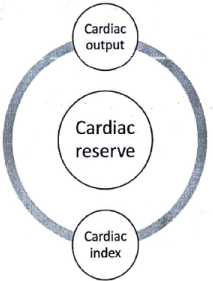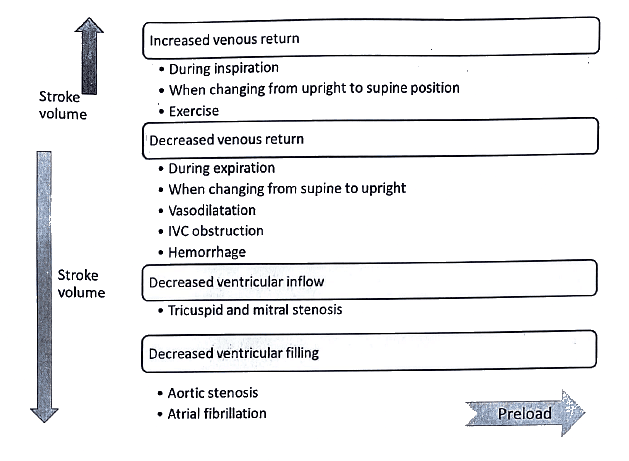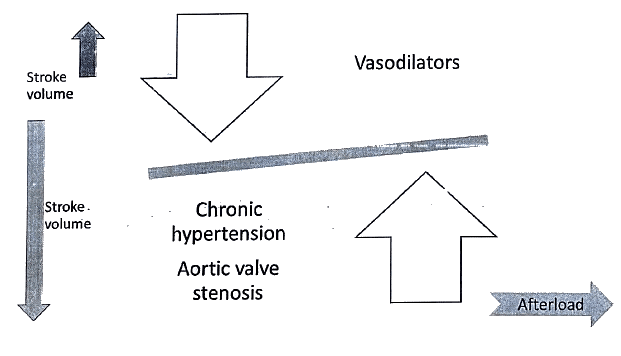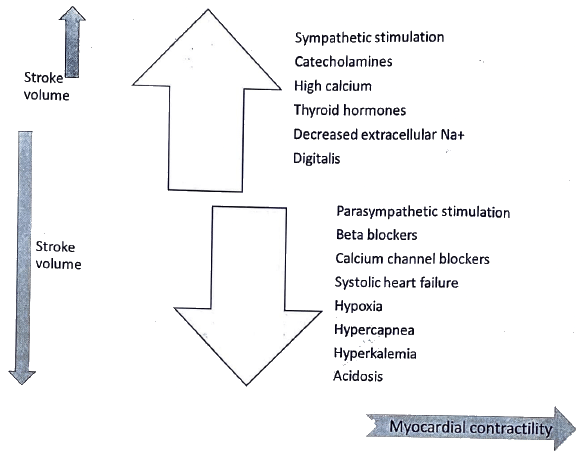UPSC Exam > UPSC Notes > Medical Science Optional Notes for UPSC > Cardiovascular System
Cardiovascular System | Medical Science Optional Notes for UPSC PDF Download
Cardiovascular physiology Repeats
Q1: Define cardiac output. How can it be measured? Discuss the factors controlling it (1994).
Q2: What are the main factors which maintain and regulate venous return (2000)?
Q3: What is cardiac output? What are the factors affecting it (2003)?
Q4: Define cardiac output. What factors maintain it? What happens to it during exercise (2009)?
Q5: Enumerate the functions of cardiovascular system. What will happen if valves would not have been there? (2010)
Q6: Define Blood Pressure. Enumerate the various factors affecting the blood pressure. How is the blood pressure regulated in the long term? (2011)
Q7: What are the effects of exercise on cardiovascular system? What is the importance of exercise in maintaining the health of CVS? (2012)
Q8: Define 'cardiac output' and 'cardiac index'. Describe the regulation of cardiac output in the body. (2015)
Q9: Describe baroreceptor reflex mechanism in the regulation of blood pressure. (2017)
Q10: Define the " cardiac reserve". Explain how is its control governed? (2018)
Functions of cardiovascular system
The cardiovascular system consists of the heart, blood vessels, and blood.
This system has three main functions:
- Transport of nutrients, oxygen, and hormones to cells throughout the body and removal of metabolic wastes (carbon dioxide, nitrogenous wastes).
- Protection of the body by white blood cells, antibodies, and complement proteins that circulate* in the blood and defend the body against foreign microbes and toxins. Clotting mechanisms are also present that protect the body from blood loss after injuries.
- Regulation of body temperature, fluid pH, and water content of cells.
Impact of Exercise on the Cardiovascular System
1. Blood Composition Changes
- Hypoxia-induced Erythropoiesis: Mild hypoxia during exercise stimulates the release of erythropoietin, triggering bone marrow to release red blood cells.
- CO2 Increase: Elevated carbon dioxide levels reduce blood pH.
2. Effects on Blood Volume
- Heat-induced Sweating: Exercise generates heat, activating the thermoregulatory system, leading to increased sweat secretion.
- Fluid loss
- Reduced blood volume
- Hemoconcentration
- Potential dehydration
3. Impact on Heart Rate
- Heart Rate Elevation:
- Exercise and mental preparation stimulate heart rate increase.
- Mechanisms involve cerebral cortex impulses, vagal tone reduction, and sympathetic activation.
- Moderate exercise: Heart rate peaks at 180 beats/minute; severe exercise: 240 to 260 beats/minute.
4. Changes in Cardiac Output
- Cardiac Output Increase: Up to 20 L/minute in moderate exercise, 35 L/minute in severe exercise.
- Contributors to Output Increase:
- Higher heart rate
- Enhanced stroke volume due to vagal withdrawal and increased force of contraction.
5. Influence on Venous Return
- Venous Return Enhancement: Occurs through the muscle pump, respiratory pump, and splanchnic vasoconstriction.
6. Blood Flow to Skeletal Muscles
- Increased Blood Flow: Significant rise during exercise due to multiple factors, including sympathetic cholinergic activity.
- Factors Influencing Blood Flow:
- Vasodilatation induced by sympathetic nerves
- Hypercapnea, hypoxia, potassium ions, lactic acid, temperature rise, adrenaline, and increased sympathetic cholinergic activity.
7. Blood Pressure Dynamics
- Isotonic Exercise:
- Systolic pressure increases; diastolic pressure remains unchanged.
- Isometric Exercise:
- Both systolic and diastolic pressures increase due to heightened peripheral resistance.
- Post-Exercise Blood Pressure:
- Falls below resting levels due to vasodilatation caused by accumulated metabolic end products.
Question for Cardiovascular SystemTry yourself: What is the main function of the cardiovascular system?View Solution
Limitations on Maximal Exercise Abilities
- Cardiac Output Constraints: Maximal heart rate and stroke volume achieved.
- Oxygen Utilization: Muscles can extract up to 100%, but total blood oxygen utilization limited to 75%.
- Olympic Athlete Scenario: Even elite athletes reach maximum limitations on heart rate and stroke volume.
Energy stores for exercise
- Oxidative phosphorylation provides the most amount of energy; followed by anaerobic glycolysis and then reserved pool/store of high energy phosphates
- However high energy phosphates have the highest rate of energy delivery (power); followed by anaerobic glycolysis then oxidative phosphorylation !
Switch from oxidative phosphorylation to glycolysis when high energy phosphate concentration falls to half of max value
(*note = oxidative phosphorylation and glycolysis provide energy in the form of high energy phosphates (ATP) and contribute to the pool of high energy phosphates)
Question for Cardiovascular SystemTry yourself: What is the main factor that limits the maximal exercise abilities of individuals?View Solution
Summary
- Beginning of exercise (events are listed in order in which they occur)
- mean circulatory pressure increases by contraction of muscle and abdomen that compress veins and vena cava → increase CO
- autonomic mediated increase in mean circulatory pressure → increase CO
- increase in ionotropic effect on myocardium → increase CO *
- increase in HR → increase CO
- decrease in peripheral resistance → increase CO




The document Cardiovascular System | Medical Science Optional Notes for UPSC is a part of the UPSC Course Medical Science Optional Notes for UPSC.
All you need of UPSC at this link: UPSC
|
7 videos|236 docs
|
FAQs on Cardiovascular System - Medical Science Optional Notes for UPSC
| 1. What are the main functions of the cardiovascular system? |  |
Ans. The main functions of the cardiovascular system are to transport oxygen, nutrients, hormones, and waste products throughout the body, regulate body temperature, maintain pH balance, and support the immune system.
| 2. How does the cardiovascular system regulate body temperature? |  |
Ans. The cardiovascular system helps regulate body temperature by distributing heat throughout the body. When the body temperature rises, blood vessels near the skin dilate, allowing more blood to flow near the surface and release heat. Conversely, when the body temperature drops, blood vessels constrict, reducing blood flow near the surface and conserving heat.
| 3. How does the cardiovascular system maintain pH balance? |  |
Ans. The cardiovascular system helps maintain pH balance by transporting buffers, which are substances that can absorb or release hydrogen ions, throughout the body. These buffers help prevent drastic changes in blood pH by neutralizing excess acids or bases.
| 4. How does the cardiovascular system support the immune system? |  |
Ans. The cardiovascular system supports the immune system by transporting white blood cells, antibodies, and other immune cells throughout the body. These cells help defend against pathogens and foreign substances, promoting overall immune function.
| 5. What are the common diseases or conditions associated with the cardiovascular system? |  |
Ans. Common diseases or conditions associated with the cardiovascular system include coronary artery disease, hypertension (high blood pressure), heart failure, arrhythmias (abnormal heart rhythms), and stroke. These conditions can have significant impacts on overall health and may require medical intervention and lifestyle modifications.
Related Searches
















